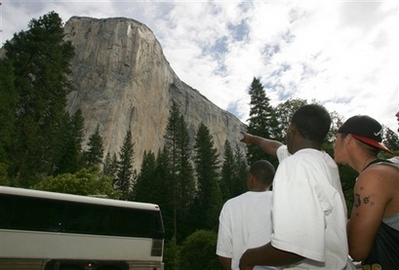Nature giving way to virtual reality
Updated: 2008-02-05 09:44
WASHINGTON - As people spend more time communing with their televisions and computers, the impact is not just on their health, researchers say. Less time spent outdoors means less contact with nature and, eventually, less interest in conservation and parks.
Camping, fishing and per capita visits to parks are all declining in a shift away from nature-based recreation, researchers report in Monday's online edition of Proceedings of the National Academy of Sciences.
|
|
"Declining nature participation has crucial implications for current conservation efforts," wrote co-authors Oliver R. W. Pergams and Patricia A. Zaradic. "We think it probable than any major decline in the value placed on natural areas and experiences will greatly reduce the value people place on biodiversity conservation."
"The replacement of vigorous outdoor activities by sedentary, indoor videophilia has far-reaching consequences for physical and mental health, especially in children," Pergams said in a statement. "Videophilia has been shown to be a cause of obesity, lack of socialization, attention disorders and poor academic performance."
By studying visits to national and state park and the issuance of hunting and fishing licenses the researchers documented declines of between 18 percent and 25 percent in various types of outdoor recreation.
The decline, found in both the United States and Japan, appears to have begun in the 1980s and 1990s, the period of rapid growth of video games, they said.
For example, fishing peaked in 1981 and had declined 25 percent by 2005, the researchers found. Visits to national parks peaked in 1987 and dropped 23 percent by 2006, while hiking on the Appalachian Trial peaked in 2000 and was down 18 percent by 2005.
Japan suffered similar declines, the researchers found, as visits to national parks there dropped by 18 percent between 1991 and 2005.
There was a small growth in backpacking, but that may reflect day trips by some people who previously were campers, wrote Pergams and Zaradic. Pergams is a visiting research assistant professor of biological sciences at the University of Illinois at Chicago, while Zaradic is a fellow with the Environmental Leadership Program, Delaware Valley, in Bryn Mawr, Pa.
While fishing declined, hunting held onto most of its market, they found.
"This may be related to various overfishing and pollution issues decreasing access to fish populations, contrasted with exploding deer populations," they said.
The research was funded by The Nature Conservancy.
|
|
|
||
|
||
|
|
|
|
